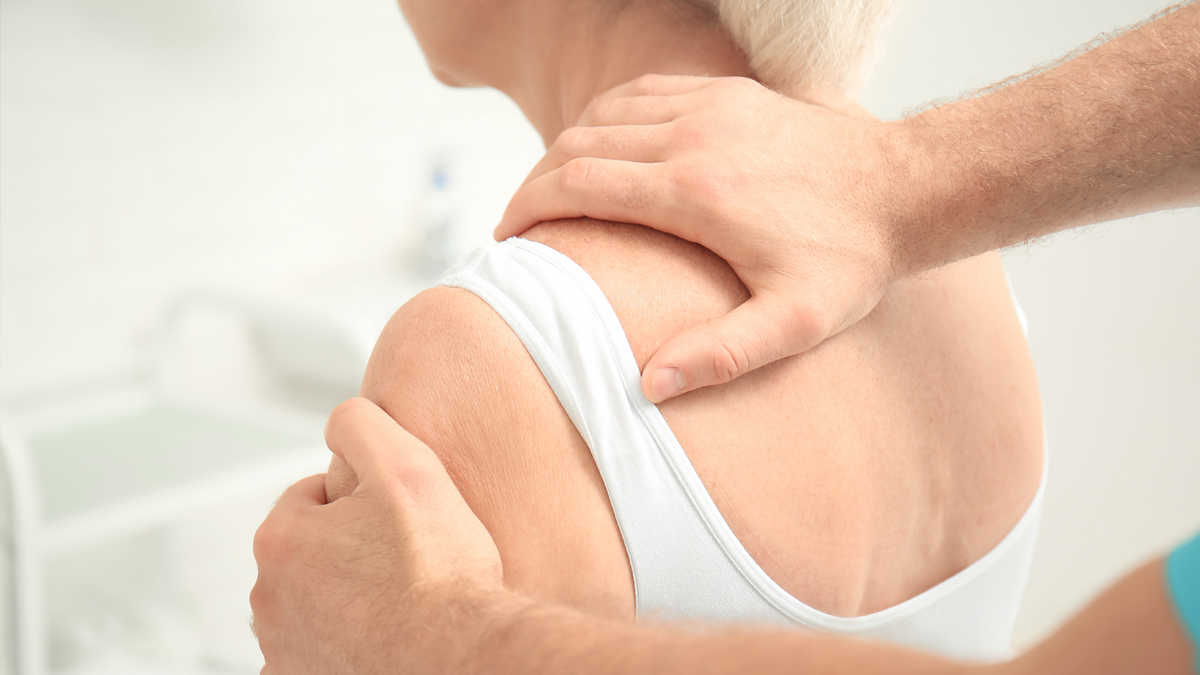Offering a wide range of services – including aquatic therapy, dry needling, spine care and neurological and orthopedic rehabilitation – CORA Physical Therapy in Spartanburg is dedicated to making sure seniors in the community have access to therapies that keep them energized, active and living their lives to the fullest.
Shoulder injuries are common in seniors, often caused by strains, overuse and progressive arthritic changes. Improper posture also can be a significant factor in shoulder pain and injuries. When the head leans forward unnaturally, the shoulder blades do as well, leading to weakened joints and a reduced range of motion.
CORA Physical Therapy addresses shoulder injuries by looking at general stability, muscular imbalance and posture.
“We loosen what’s tight and tighten what’s loose,” explained Dr. Jeff Ladinsky, clinic manager and physical therapist at CORA Spartanburg.
Therapy starts with manual mobilization of the joint, myofascial release and muscular facilitation movements. Stretches and targeted exercises aim to release tension in supporting structures and regain range of motion.
The length of therapy varies based on the severity of the injury. Most treatments started at CORA Physical Therapy continue at home with ongoing exercises that maintain and promote stability in the joint.
Proximal humeral fractures also are prevalent in older patients. They affect movement and restrict the ability to reach, thereby limiting independence. Often caused by a fall on the shoulder or outstretched arm, proximal humeral fractures must be evaluated by an orthopedic specialist to determine if surgery is needed.
Patients who do not need surgery are placed in a sling to stabilize the fracture. When surgery is required, the patient’s doctor determines when it is safe to begin physical therapy. Starting therapy in a timely manner helps prevent adhesive capsulitis, a condition also known as frozen shoulder.
Physical therapy treatment for proximal humeral fractures starts with passive range-of-motion exercises. Pendulum exercises and those that support the hand, wrist and elbow put little pressure on the recovering joint while allowing the shoulder to safely move through the air. The patient progresses into active assisted exercises, in which the opposite arm helps move the injured arm in key directions, aided by a cane or golf club. Finally, active range-of-motion exercises allow the injured arm to move by itself.
Because shoulder injuries can significantly impact a patient’s quality of life, CORA Physical Therapy is passionate about preventing falls. Dr. Ladinsky jokingly refers to falls as “acute gravity attacks” and attributes many falls sustained by seniors to general inactivity, which affects balance and flexibility. He recommended that seniors stay active and moving, keep up with vision care and clear walkways of tripping hazards, including rugs and pets. Among other things, Dr. Ladinsky encouraged patients to wear appropriate footwear, consider the height of furniture and use pull-reducing equipment when walking their dogs.
While falls and injuries can be prevented, they cannot be entirely avoided. CORA Physical Therapy accepts patients through direct access, which means referrals are not required. CORA offers telehealth visits and therapy to ensure continuity of care and accepts more than 4,000 insurance plans, as well as payment options for patients without insurance.
For more information, visit coraphysicaltherapy.com/spartanburg-south-carolina/ or call 864-699-0418 for a free consultation.
By Isabel Alvarez Arata
